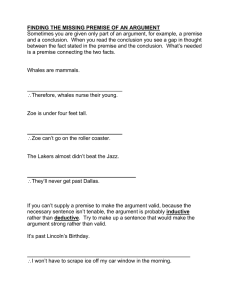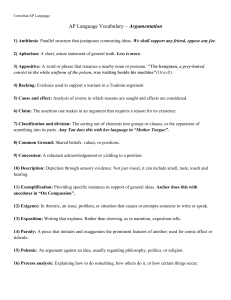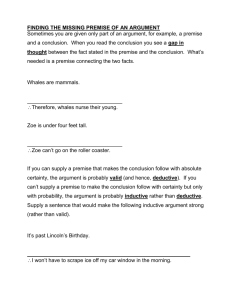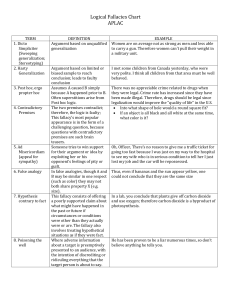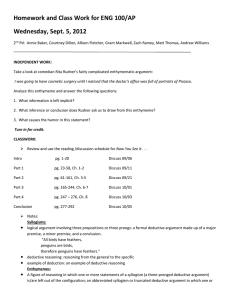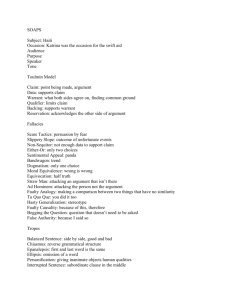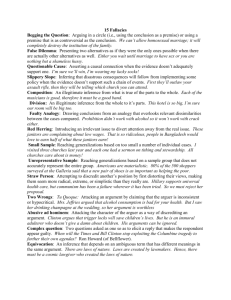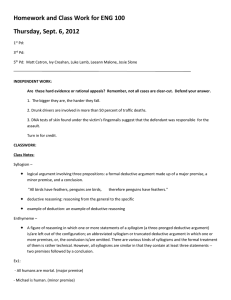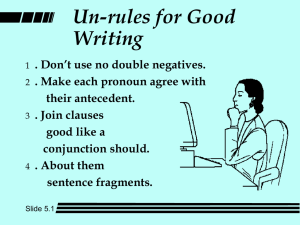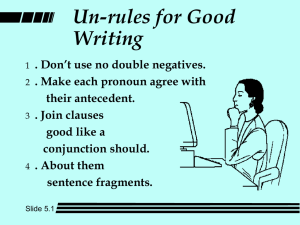What is an argument?
advertisement
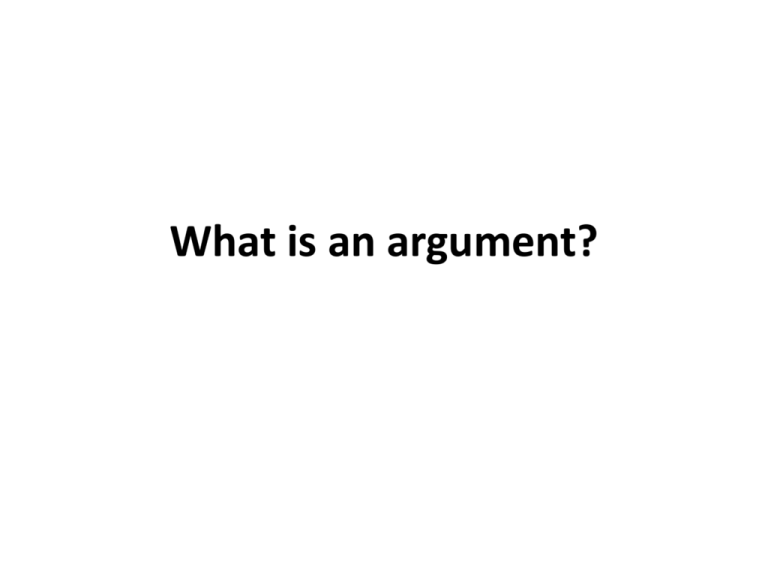
What is an argument? Argument Clinic Clip • What is the video suggesting about good and bad arguments? • What makes a strong argument? • http://www.youtube.com/watch?v=kQFKtI6gn 9Y Argument and Persuasion • The process to discover a truth using evidence and reason. • Argument, as a form of persuasion, relies on reason, logos (“word” or” reason”). • The process to convince or move others from conviction to action. • To persuade is to win over, whether by giving reasons, or by appealing to the emotions pathos (“feeling” and “suffering”), or establishing credibility and high moral character with the audience, ethos (“character”). Argument • A series of statements and reasons that support a conclusion, often formulated so that the conclusion is deduced from premises [reasons]. • Claim: A statement or assertion of something to be true. • Premise: A statement or reason offered as support of another claim. • Conclusion: A statement or claim supported by a premise or premises [reasons]. Syllogisms: Deductive Reasoning Major Premise: All human beings are mortal. Minor Premise: Socrates is a human being. Conclusions: Socrates is mortal “Letter from Birmingham Jail” by Martin Luther King Jr. • “You assert that our actions, even though peaceful, must be condemned because they precipitate violence.” • Syllogism: – Society must condemn actions (even if peaceful) that precipitate violence. – This action (though peaceful) will precipitate violence. – Therefore, society must condemn this action. Premise must be true. Syllogism must be valid. •The whale is a large fish. •All large fish have scales. •Therefore, whales have scales Tips for finding premise/conclusion • Look for clues. – Premise Indicators: Since, because, for, as , follows from, as shown by, in as much as, as indicated by, the reason that, may be inferred from, given that – Conclusion Indicators: Therefore, hence, so, accordingly, consequently, proves that, as a result, thus, for this reason, for these reasons, it follows that, I conclude that, which shows that, which means that, which entails, which implies that Identifying Argument from Explanation The premise of an argument answers the question, “Why should I accept this conclusion?” An explanation takes the conclusion as an assumed truth or fact, and then explains, or states why something is the case.
